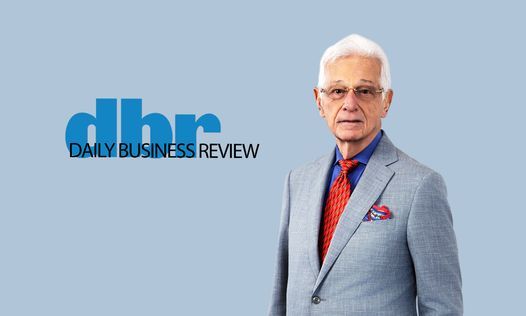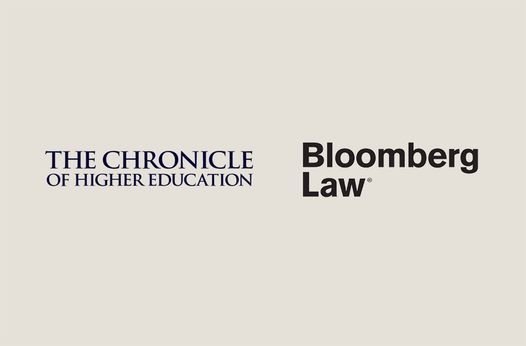Consumer Law Hinsights – October 2020 Edition
Hinshaw Newsletter | 6 min read
Nov 3, 2020
Consumer Law Hinsights is a monthly compilation of nationwide consumer protection cases of interest to financial services and accounts receivable management companies.
Expand each of the topics below to read our full analyses.
CFPB Issues Final Debt Collection Rule
The Consumer Financial Protection Bureau (CFPB) released a portion of its debt collection rule in an effort to modernize the regulation of the debt collection industry. The 653-page promulgation addresses issues surrounding how and where debt collectors can contact consumers. It leaves room for a later rule—which will likely be announced in December—to explore issues relating to consumer disclosure requirements and the collection of time-barred debts.
Among other points, the first installment allows for using text messaging and email when collecting on debts, provided that the debt collector gives instructions about how to opt-out in each message. The final rule also includes a safe harbor from third-party disclosure violations if certain procedures are followed. ACA International members can learn more about the Electronic Communications Disclosures from Hinshaw's David Schultz in a webinar on Monday, November 9, at 2:00 p.m. Central.
In addition, the final rule sets a nationwide cap on the number of communications that collectors could make when attempting to contact consumers on the phone. Notably, debt collectors are not allowed to make more than seven calls in a seven-day period, and they may not call for seven days after having a telephone conversation with a consumer. There are exceptions to this provision, however.
The rule provided guidance on a limited content message that can be left when leaving voicemails for consumers. According to the CFPB, that message should include a:
- Business name for the debt collector that does not disclose the nature of the debt collection call;
- Request that the consumer respond to the message;
- Name (or names) of a person that the consumer may talk to about the debt; and
- A telephone number that the consumer can call to contact the debt collector.
The changes will go into effect one year after they are published in the Federal Register.
How Judge Barrett's SCOTUS Appointment Could Impact the TCPA
Facebook v. Duguid is a closely watched case in the community impacted by the Telephone and Consumer Protection Act (TCPA). District courts remain divided in their interpretation of the TCPA, and as Facebook makes its way to the U.S. Supreme Court, a final decision on this debate looms. The crux of the matter is whether the phrase "using a random or sequential number generator" modifies the term "store," "produce," or both.
With the passing of Honorable Ruth Bader Ginsberg, a seat has opened up on the Supreme Court and Amy Coney Barrett has been installed to fill. Judge Barrett has a reputation as a textualist and has already signed industry-favorable TCPA decisions, including finding that the phrase "using a random or sequential number generator" modifies both "store" and "produce." This interpretation means that the device used by a business must not only store the number to be dialed, but also produce it. In practice, this means a system that dials numbers entered into the system by a debt collector would not be a violation of the TCPA. Thus, with the appointment of Judge Barrett, many expect her to support a narrow interpretation of what an Automatic Telephone Dialing System (ATDS) is in time for the Facebook v. Duguid decision. That decision will ultimately break the tie between the Second, Sixth, and Ninth Circuits' broad interpretation of the ATDS, along with the narrow interpretation from the Third, Seventh, and Eleventh Circuit Courts.
TCPA Unconstitutional According to District Court in Louisiana
In October, a Louisiana district court found the Telephone Consumer Protection Act (TCPA) unconstitutional, as applied to any calls made between November 2015 and July 6, 2020. The ruling follows a decision from the U.S. Supreme Court in Barr v. AAPC, where the content-based exemption for calls made to collect on government matters was alone found unconstitutional in an attempt to keep the remainder of the statute intact. From this decision, the Louisiana court deduced that the TCPA was unconstitutional in its entirety until the Supreme Court decision severed the unconstitutional exemption.
By way of background, the TCPA was enacted in 1991 and amended by Congress in 2015 to include an exemption for efforts made to collect debts owed or guaranteed by the federal government. The Supreme Court struck down this amendment as unconstitutional on July 6, 2020, thus severing it from the rest of the statute, and reverting to the original TCPA. This, however, brings into question what can be enforced in the middle. From 1991 to November of 2015—and from July 6, 2020 onwards—the TCPA is effective, though it has ambiguities many hope will be resolved in Facebook v. Duguid. It remains to be seen how other courts will apply the decision in Barr v. AAPC, but if it is anything like this case, a number of decisions will require re-evaluation.
The case is Stacy Creasy, et al. v. Charter Communications, Inc., 2020 U.S. Dist. LEXIS 177798.
Showing Current Balances in a Collection Letter is Not False or Misleading
One of the requirements of the Fair Debt Collection Practices Act (FDCPA) is that debt collectors must send consumers a dunning letter containing written notice disclosing the amount of debt owed. Courts have held that a failure to clearly disclose this information constitutes a violation of the FDCPA.
In Wisconsin, a plaintiff brought a class action suit alleging that the debt collector's dunning letter that showed zero interest and other charges was deceptive and misleading because it caused the debtor to believe that the debt collector could in fact assess interest and other fees at a future point in time. The Seventh Circuit follows the unsophisticated consumer standard. The unsophisticated consumer is defined as someone who is "uninformed, naïve, or trusting" but who still possesses reasonable intelligence, basic knowledge about finance, and is capable of reading collection notices with care. The goal being to avoid "bizarre" or "idiosyncratic" interpretations.
The court took a two-step approach in the analysis by first assessing whether it was possible that an unsophisticated consumer would infer from the letter that interest and other charges would accrue if the debt was not settled. If the court answered yes to that question, it would then assess whether such an inference is false or misleading. Here, the court did not find that providing a breakdown of the debt that showed a zero balance for interest and other charges would lead an unsophisticated consumer to believe that such could accrue in the future. The court stated that just because a dunning letter says that something is currently true does not establish a basis for a consumer to assume there is ambiguity regarding future events. Effectively, any statement addressing a current situation cannot, in and of itself, be used to infer that an activity may or may not take place in the future.
The case is Degroot v. Client Servs., 2020 U.S. App. LEXIS 31951.
FCC Accepts Comments for TRACED ACT
The Federal Communications Commission (FCC) sought comments to the Telephone Robocall Abuse Criminal Enforcement and Deterrence (TRACED) Act on October 26, 2020. Comments are due November 3, 2020..
The TRACED Act fights against robocalls while creating exemptions to the TCPA. Some of the proposed exemptions currently are non-commercial calls to a residence, commercial calls to a residence that do not constitute telemarketing, tax-exempt nonprofit organization calls to a residence, HIPAA-related calls to a residence, package delivery-related calls to a wireless number, inmate calling service calls to a wireless number, and cellular carrier calls to their own subscribers.
The purpose for passing the TRACED Act was to protect the individual privacy interests without preventing calls that consumers want. However, the challenge comes in the execution of this notion: how can calls be programmatically differentiated? One proposed way of accomplishing this is by distinguishing between commercial and non-commercial robocalls. That said, arguments have been made that commercial calls can still be important and something not to be blocked, such as reminders about prescriptions. The other part of the TRACED Act is the STIR/SHAKEN framework: Secure Telephone Identity Revisited (STIR) and Signature-based Handling of Asserted Information Using tokens (SHAKEN). Effectively, calls traveling through phone networks would have a unique "signature" that legitimizes the caller. The counter is that, even though the caller may be legitimate, the message may not.
It remains to be seen how this will impact calls from debt collectors and servicers.
Related People
Featured Insights

Press Release
Jan 6, 2026
Hinshaw Adds Four-Member Consumer Financial Services Team in DC and Florida

Employment Law Observer
Dec 8, 2025
12 Days of California Labor and Employment: 2025 Year in Review

Press Release
Dec 4, 2025
Hinshaw Recognized by the Leadership Council for Legal Diversity as a 2025 Top Performer

Press Release
Nov 25, 2025
Hinshaw Legal Team Secures Summary Judgment in Gas Station Injury Case

Press Release
Nov 18, 2025
Hinshaw Releases the Third Edition of Duty to Defend: A Fifty-State Survey

In The News
Nov 13, 2025
A Profile on Neil Rollnick: After 57 Years in Practice, He Has No Plans to Retire








